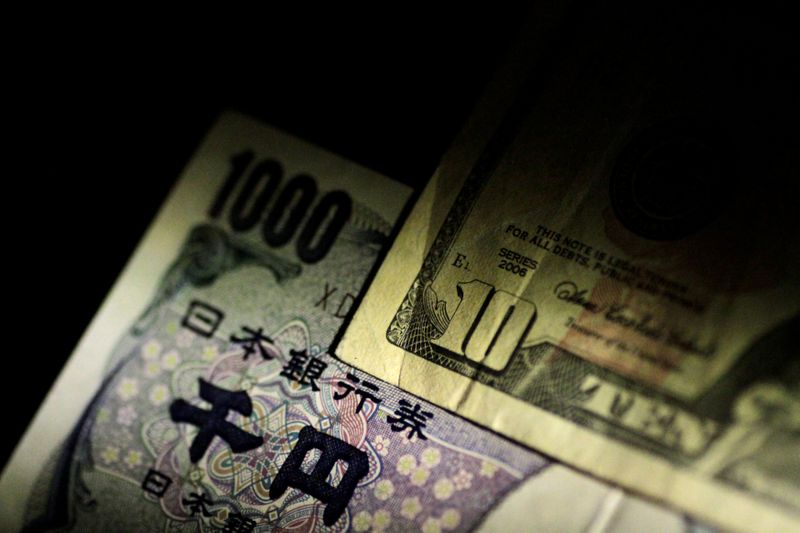By Tommy Wilkes and Tom Westbrook
LONDON/SINGAPORE (Reuters) - The dollar fell 3% against the Japanese yen and commodity-linked currencies tanked on Monday, as a 30% crash in the oil price and tumbling stock markets panicked investors and sent currency prices swinging wildly.
A gauge of volatility in the euro/dollar market - the world's most-traded currency pair - shot to its highest since April 2017 as the euro surged more than 1% to its strongest since January 2019.
Dollar-yen one-month implied volatility surged to an 11-year high at 8.8%
Investors are dumping dollars because of the collapse in U.S. Treasury yields. The benchmark yield is at 0.47%, after trading above 1% a few days earlier, as traders shed risky assets and head for the safety of government bond markets.
Oil prices fell 30% after Saudi Arabia pledged to slash prices and boost production following the collapse of an OPEC supply agreement. [O/R]
That unnerved investors already rattled by more than a weak of wild moves in markets, as they struggled to assess the economic damage caused by the coronavirus.
"Financial markets have suffered a rude awakening to notions that volatility was a thing of the past. We're now seeing the kind of market dislocation not witnessed since the 2008-09 global financial crisis," ING analysts said, describing the set-up as a "perfect storm" for currency markets.
"This all conspires to deliver an extreme flight to safety, into the likes of the JPY and the CHF," they wrote.
In hectic trade, the dollar fell 3% against the yen to 101.58
The dollar index dropped to its weakest since September 2018 before recovering somewhat to trade at 95.181, down 0.3% (=USD).
The Swiss franc added nearly 1% against the dollar
Some of the biggest moves were in currencies linked to oil prices.
Norway's crown tumbled to record lows. The euro added nearly 5% to 10.997 (EURNOK=D3) and the dollar gained more than 3% to 9.5455 crowns
The Australian
"It is totally wild," said Shafali Sachdev, head of FX Asia at BNP Paribas (PA:BNPP) Wealth Management in Singapore. "This is not a train I want to be getting in front of, and how long it continues and where it goes from here is going to depend on how the situation evolves."
Further stock decline could drive even more gains in funding currencies, she said.
So far, the yen is headed for its largest three-day gain since the 2008 financial crisis. It is up 9.4% in a dozen trading days.
The gain is bad news for exporters and has raised concerns among policymakers in Japan. A senior finance official warned that authorities were closely watching trade.
In times of low volatility - and currency market volatility has been at or near record lows for several years - investors borrow heavily in low- or negative-yielding currencies like the euro and yen to buy higher-yielding FX elsewhere.

Sudden risk aversion and volatility send investors panicking to reverse those positions, causing wild moves in currencies.